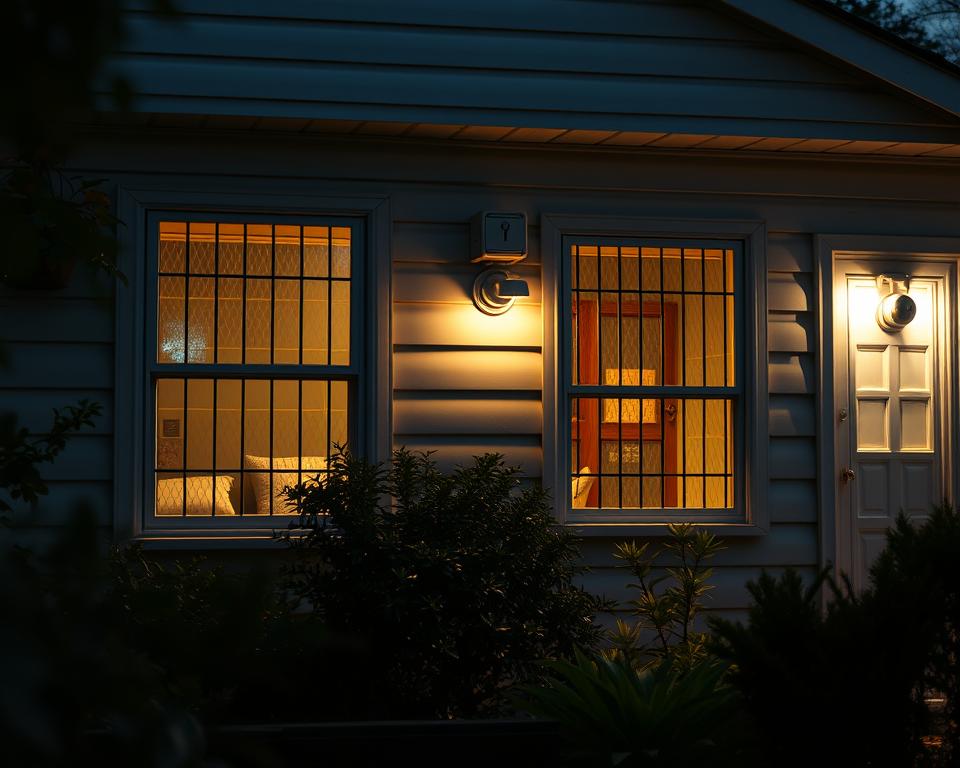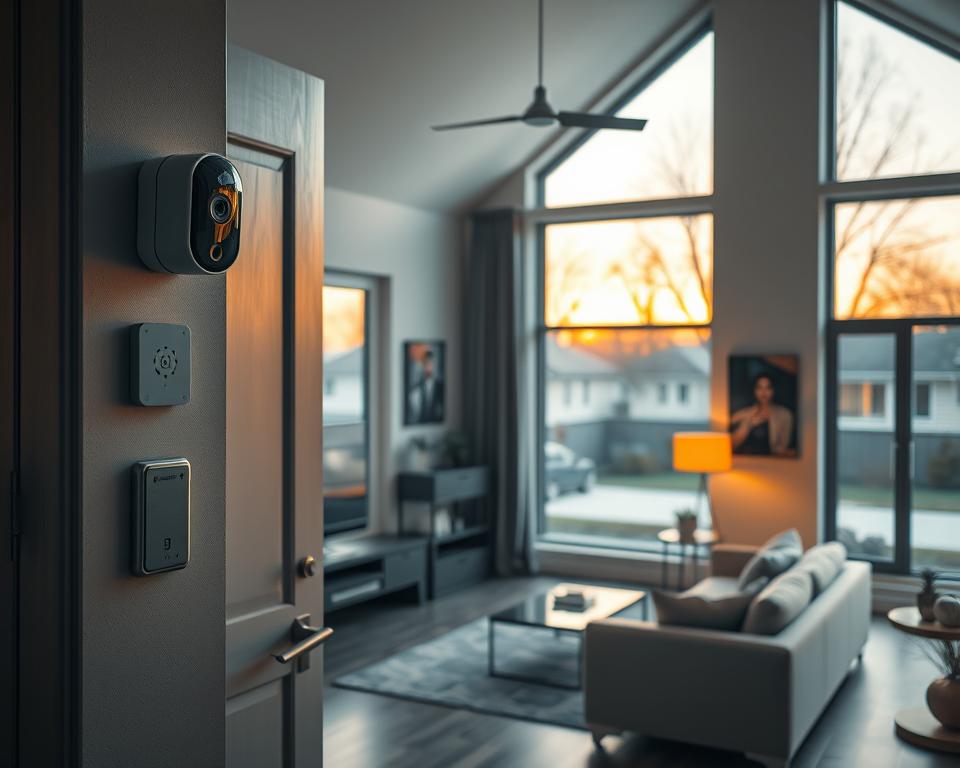The trend towards smart security solutions is on the rise. Homeowners in Canada are now looking more at wireless home security systems. These systems offer better convenience and up-to-date features. However, they also have their downsides. In this article, we’re going to give you a fair look at wireless home security. We aim to help you decide what’s best for your home in Canada.
Introduction to Wireless Home Security Systems
Wireless home security systems have changed how we protect our homes. They use wireless technology, removing the need for wires. This makes them fit better in modern homes. They have become popular because they are flexible and reliable, which homeowners like.
Understanding Wireless Home Security
These systems send signals using radio frequencies. They use modern tech to guard against threats without needing wires. This makes them easy to install and control from afar. You can also add more sensors easily, showing how they meet current safety needs.
Historical Background
Home security has greatly evolved. It began with simple locks and basic alarms. Then, electronic systems emerged in the mid-20th century. Wireless technology came later, leading to today’s advanced systems. These developments have made high-tech security available to more people.
How Wireless Home Security Systems Work
Wireless home security systems use a network of devices that talk to each other wirelessly. They rely on connectivity through wireless networks to keep your home safe. This lets all parts of the system work together.
The system’s core includes security system components like cameras, sensors, and alarms. These are set up around your home to notice strange activities. If a sensor detects movement or an opened door/window, it sends a signal to the control panel using Wi-Fi, cellular networks, or radio frequencies.
The control panel processes these signals and might set off alarms. It also sends alerts to your smartphone or a monitoring service. This keeps you informed at all times. Being able to monitor your home remotely is key in modern home automation systems. It brings comfort whether you’re home or away.
Wireless networks are crucial for these systems to work. They provide the needed connectivity for alerts and system quickness. As home automation evolves, wireless security systems get better, using the newest tech (
Indeed, these systems change how we protect our homes. They use a mix of tech to keep a strong safety area around your house. By knowing how these parts communicate wirelessly, you can see how they secure your home.
Advantages of Wireless Home Security Systems
Wireless home security systems are quite popular. They offer many benefits, making homes safer. They also add convenience and new tech to your security.
Easy Installation and Setup
One big plus of these systems is easy installation. You don’t need wires or a pro for setup. These DIY security systems are simple. They come with clear guides, making them user-friendly. So, you can get your system running fast without much tech skill.
Remote Monitoring Capabilities
Being able to monitor your home from anywhere is a key feature. Thanks to smart technology, this is possible. With internet access, watch over your home from afar. Mobile apps send you mobile alerts if something’s up. You can see live feeds and manage the system wherever you are. This keeps you informed and your home safe, always.
Scalability and Flexibility
The ability to grow with you is another advantage. These systems can change as your needs do. Adding gadgets or getting security system upgrades is easy. You can expand without new wires or big changes. So, as your family or home grows, your security can too. This makes wireless systems a flexible choice for long-term protection.
Potential Drawbacks of Wireless Home Security Systems
Wireless home security systems have many advantages, but there are drawbacks too. Before deciding, think about these drawbacks. This will help you see both the good and bad sides clearly.
Vulnerability to Interference
Wireless systems can be disrupted by electromagnetic interference. Devices like microwaves and fans might interfere with your security equipment. This interference could weaken your home’s protection.

Battery Dependency
These systems depend a lot on batteries. You need to check and change them often to keep things working. If you forget, your security might not work when you really need it.
Cost Considerations
At first, wireless systems might look cheap. But the real cost includes hidden fees and upkeep expenses. You might need to spend extra on batteries and updates to handle interference.
Think about all the costs, from the start and over time. This helps you avoid unexpected charges. Knowing these drawbacks will guide you through choosing the right security for your home.
Choosing the Right Wireless Home Security System for Your Home
Choosing the right security system for your home is essential. Start by looking at your home’s size. Bigger houses might need more sensors and cameras. Smaller places can work well with simpler systems. Think about your home’s layout and where you might need extra coverage.
Customized security solutions let you pick what’s best for you. Maybe you want motion alerts, or to control your system with a smartphone. You might like installing things yourself or prefer someone to help you. Your choices here will shape your final decision.
Thinking about money is key too. You may want the latest features, but they can be expensive. Figure out what you can spend now and what you can pay monthly. Finding a balance will help make a choice that fits your budget.
Finally, consider how tech-savvy you are. Some systems offer lots of options but are complex. Others are easier to use but might not be as customizable. Reflecting on this will help you choose a system that’s right for both your security needs and your comfort level.






Recent Comments